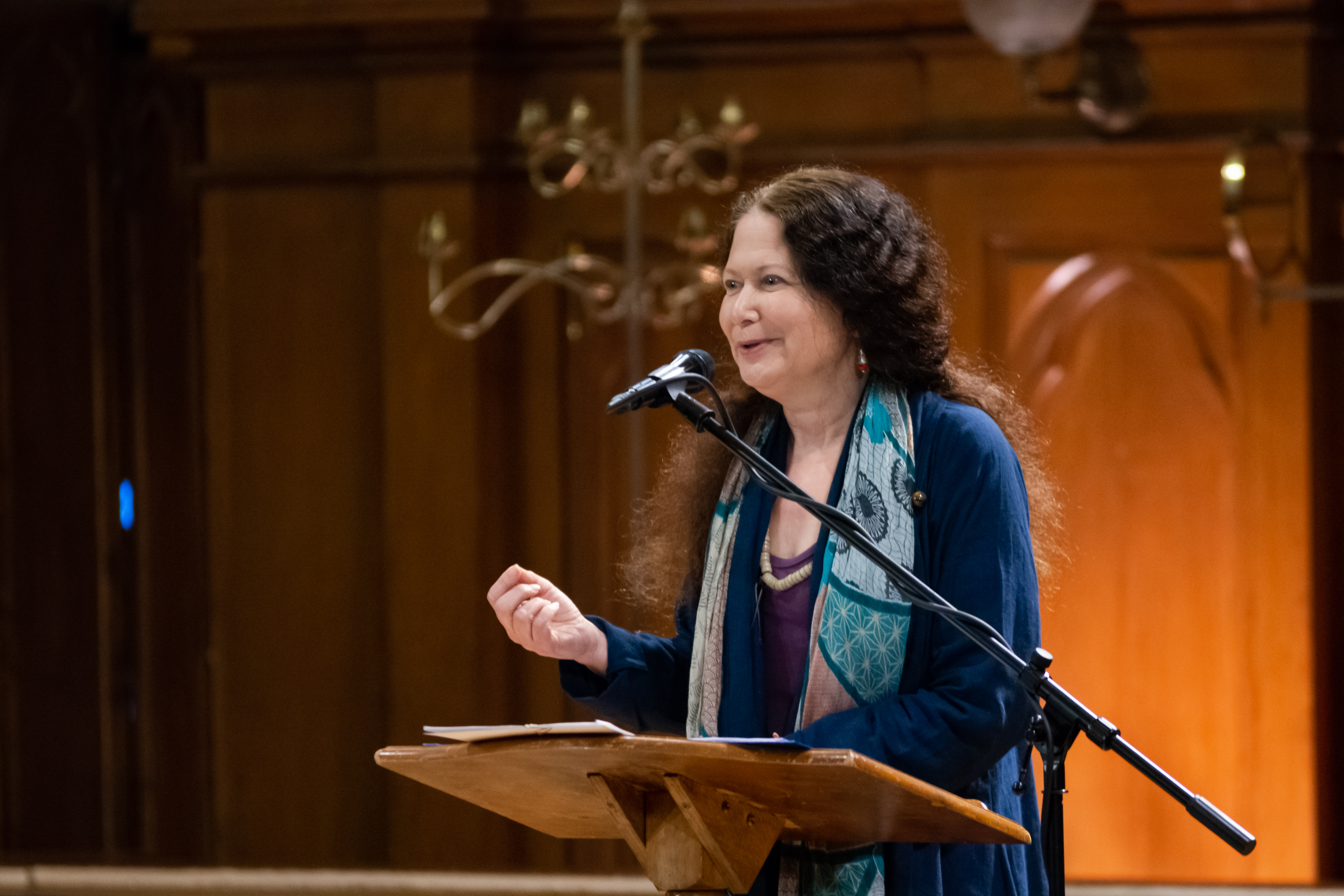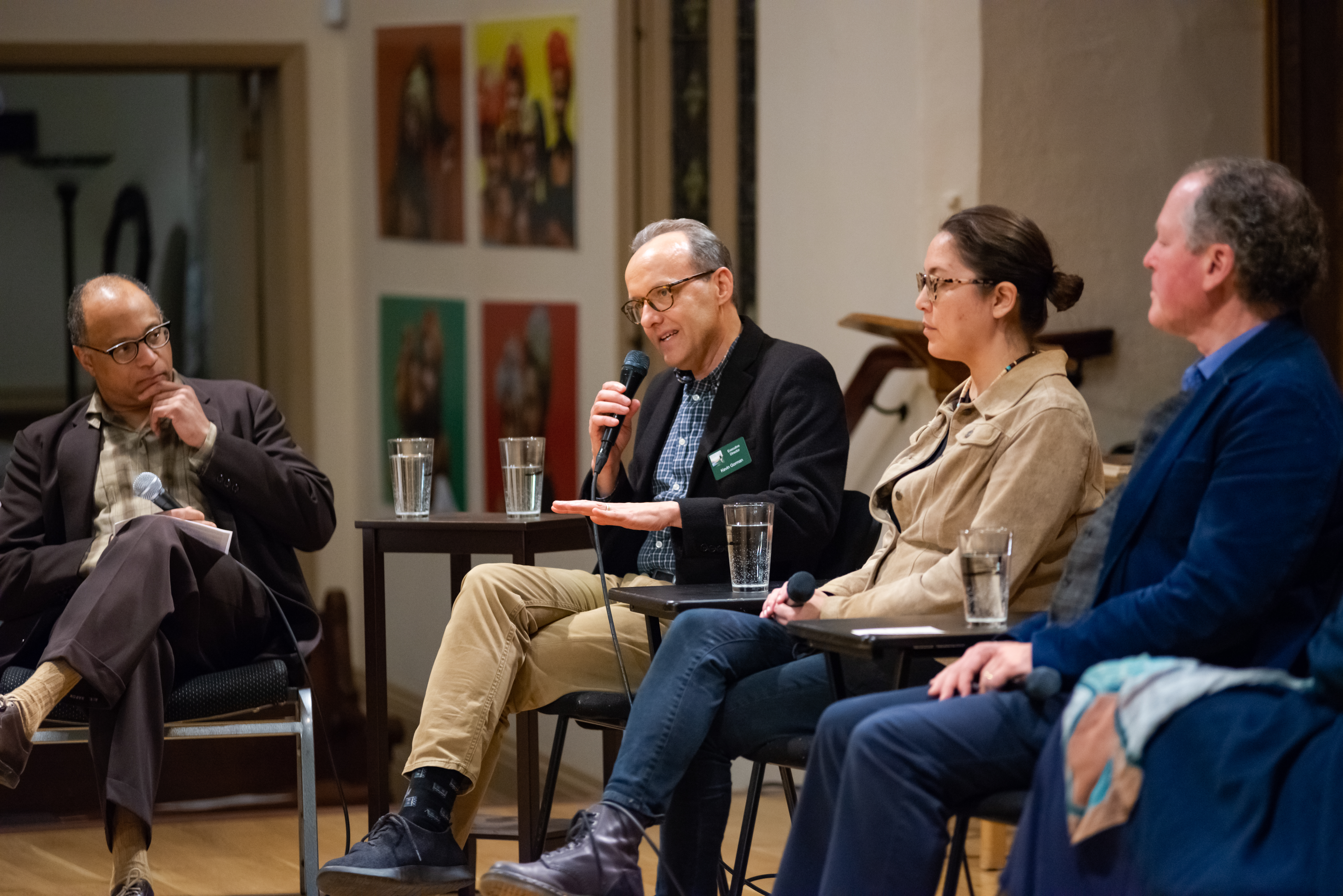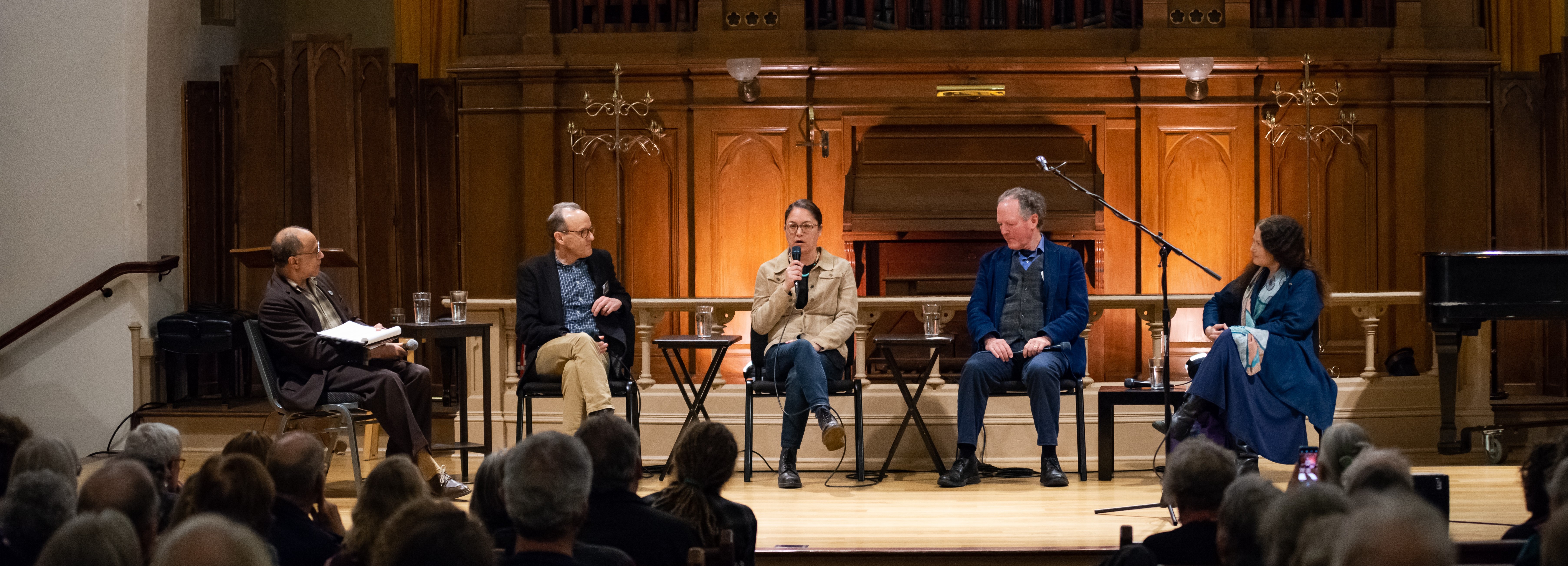The Trump administration's removal of information about climate change from government websites soon after he took office inspired her poem, "On the Fifth Day." Hirshfield read the poem at the inaugural March for Science in 2017, and undertook an ongoing outreach project, Poets for Science.
 Hirshfield, a San Francisco Bay-area resident, has authored eight much-honored poetry collections, two now-classic books of essays, and four books of poetry translations. She also embodies the bond between art and conservation explored at the March 27 event at The Old Church concert hall. Oregon poet laureate Kim Stafford joined Hirshfield as a featured reader at the 90-minute event co-sponsored by the online journal Terrain.org: A Journal of the Built + Natural Environments.
Hirshfield, a San Francisco Bay-area resident, has authored eight much-honored poetry collections, two now-classic books of essays, and four books of poetry translations. She also embodies the bond between art and conservation explored at the March 27 event at The Old Church concert hall. Oregon poet laureate Kim Stafford joined Hirshfield as a featured reader at the 90-minute event co-sponsored by the online journal Terrain.org: A Journal of the Built + Natural Environments.
Roughly 300 people attended the sold-out reading and panel discussion. After the poetry readings, Klamath area visual artist Ka'ila Farrell-Smith and Friends Executive Director Kevin Gorman joined the discussion. Portland journalist Marty Hughley moderated.
The forum bringing together the arts and conservation communities marked a first for Friends. Each year Terrain.org organizes an event for the public to coincide with the Association of Writers and Writing Programs' national conference, held this year in Portland.
"Anyone can have a reading at a pub or a bookstore, but to partner with an organization that has the same goals as we have is really important," said Simmons Buntin, Terrain.org's editor-in-chief.
Buntin appreciated the chance to reach beyond the writers attending the conference. The broader audience included some who may not have attended a poetry reading before, he said.
"They were all engaged and bright-eyed," Buntin said. "It's the best event we have done, and that's because of the good effort by Friends."
Friends is the only nonprofit dedicated entirely to protecting the Columbia River Gorge National Scenic Area, but recreation more than conservation tends to be foremost on people's minds when they first discover the group, said Kevin Gorman, executive director of Friends. Nonetheless, a seed takes root, Gorman said, borrowing from Stafford's reading of his poem, "I Am the Seed."
 "Many people come to our organization because they want to know about certain hikes. At some point ... it stops being about, 'Well, I want this.'... To me that's when the seed takes off. ... It becomes doing something for a higher purpose beyond yourself and your favorite hiking spot," Gorman said.
"Many people come to our organization because they want to know about certain hikes. At some point ... it stops being about, 'Well, I want this.'... To me that's when the seed takes off. ... It becomes doing something for a higher purpose beyond yourself and your favorite hiking spot," Gorman said.
"One of the words we talk a lot about is 'wonder,'" he added. "Beauty is what you see out there, but wonder is how you feel. As we try to move people, and move their hearts and their heads, art as much as anything helps."
Indeed, art can be as persuasive as facts, said Stafford, who read a poem titled "Wild Birds Teach Us," inspired by a newspaper article about bird deaths.
"The news is important, but it's incomplete. It needs to be made into a poem," he said. "Many of us have been using the phrase, 'Speak beauty to power.'"
Art can both inspire activism and be a tool for change, Farrell-Smith stressed. She is co-director of the artist residency program for Signal Fire, an Oregon-based environmental art nonprofit focused on, "providing opportunities for artists and creative agitators to engage with our remaining wildlands."
"Having opportunities for people to learn how to express themselves and communicate with one another through creative practices … is incredibly important and it's a part of a healing process as well as an educational model," she said.
Hirshfield said art supports the environmental movement by creating awareness that "all things are interconnected, inextricably."
"Art for me is one of the technologies we have developed to rinse our eyes of narrow and ego-centered seeing," Hirshfield said. "If we feel home in everywhere our eyes land on, every surface our feet walk on, we will treat it the way it deserves to be treated."
Erin Middlewood is a writer from Vancouver, WA. She enjoys exploring the Columbia Gorge with her husband and two sons. She's especially fond of the Nancy Russell Overlook at Cape Horn. Follow her at erinmiddlewood.com or @emiddlewood on Twitter.
Photos in body text (top to bottom):
- Jane Hirshfield reads from her poetry to the crowd at Conservation in Verse. (photographer: Brandon Davis)
- Kevin Gorman discusses conservation and art with Marty Hughly, Kai'la Farrell-Smith, Kim Stafford, and Jane Hirshfield. (photographer: Brandon Davis)

